BERNARD ARONSON: THE CONFLICTING INTERESTS OF “OUR MAN IN HAVANA’
But, while Aronson is supposed to promote US interests — a free-market economy, democratic principles, and the rule of law — he has instead been little more than a cheerleader for an agreement that serves only to empower one of the world’s wealthiest and most brutal terrorist groups. Could it be that the business interests of “Our Man in Havana” and the nations’ interests are not aligned?
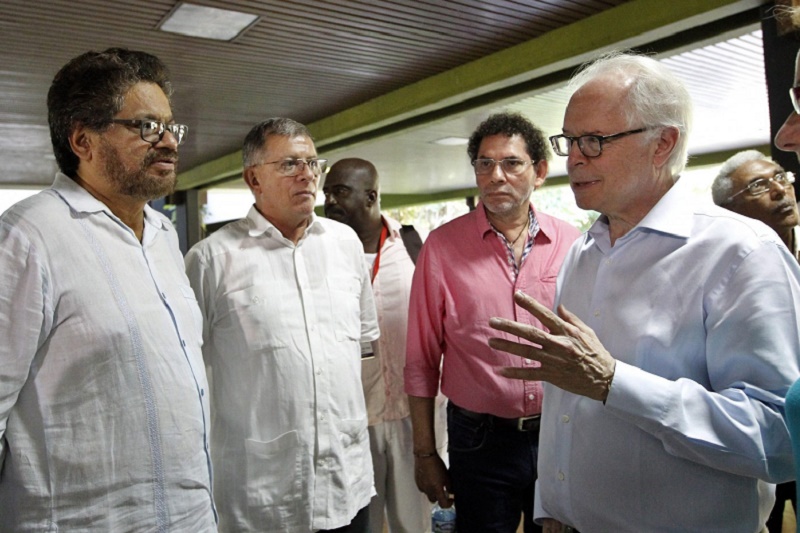
Bernard Aronson con los cabecillas terroristas de las FARC
Bernard Aronson: The Conflicting Interests of “Our Man in Havana’
But, while Aronson is supposed to promote US interests — a free-market economy, democratic principles, and the rule of law — he has instead been little more than a cheerleader for an agreement that serves only to empower one of the world’s wealthiest and most brutal terrorist groups. Could it be that the business interests of “Our Man in Havana” and the nations’ interests are not aligned?

By: Lia Fowler*
12 March 2017
On February 19, 2016, the small town of El Conejo, Colombia, provided a portrait of what so-called “peace” will look like, should the agreements in Havana between the government of Juan Manuel Santos and the narco-terrorist groups FARC-ELN be ratified. Hundreds of terrorists — armed with rifles, machine guns and grenades and loaded with ammunition belts — swarmed the town of 2,000 inhabitants. Some arrived in buses; others in vehicles carjacked at gunpoint from civilians. They were joined by the FARC’s top commanders, who were flown in from Havana in Red Cross transport, at the request of the Santos government. Colombian Army troops, which maintain a visible presence in the area, had pulled out the previous night, according to residents. This cleared the way for the FARC to hold an all-day rally, march with their arsenal through a school, and, steal and slaughter 10 steer from a nearby ranch to feed their entourage. They claimed they were delivering “peace education” – at gunpoint.
Colombians were outraged, as Santos, the FARC, and the Red Cross engaged in some farcical finger-pointing. But in an interview with the Washington Post, Bernard Aronson, U.S. envoy to the negotiations in Havana since February 2015, swiftly downplayed the matter, stating: “The most important thing is that the parties resolved the problem diplomatically.”
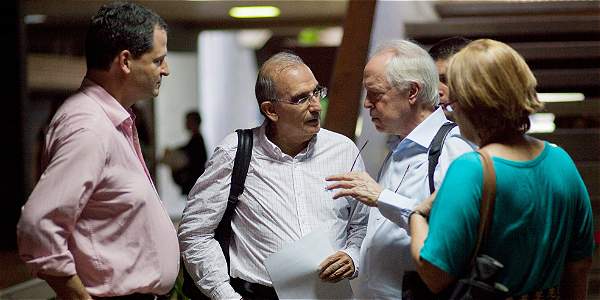
Aronson evaded the point: The events at El Conejo foreshadow Colombia’s future, per the terms of the deal he has effusively endorsed. It would allow for numerous areas of the country to be controlled by armed thugs, whose stated purpose is to institute a Cuban-style dictatorship. Not surprisingly, an overwhelming majority of Colombians – consistently more than 80 percent – reject the main points of the deal, which include no jail-time for any atrocity, no effective surrendering of weapons, territorial control, and political status and eligibility.
But, while Aronson is supposed to promote US interests — a free-market economy, democratic principles, and the rule of law — he has instead been little more than a cheerleader for an agreement that serves only to empower one of the world’s wealthiest and most brutal terrorist groups. Could it be that the business interests of “Our Man in Havana” and the nations’ interests are not aligned?
Aronson is founder and managing partner of ACON investments, a private equity firm that currently has a controlling
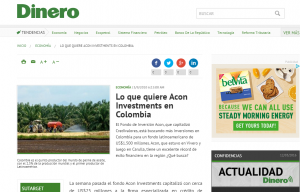
interest in three Colombian companies, including Vetra Energia, an independent oil and gas producer acquired in 2013; and Grupo Sala, a waste-management company acquired in 2011. Having business investments in the country is not necessarily a problem: it could be argued that he would have a vested interest in Colombia’s long-term prosperity. Indeed, responding to a query by Caracol Radio in 2015, the State Department said there was “no probability of a conflict between his official duties and his private financial interests.”
But a conflict does exist: Aronson’s investments make him extortable. ACON’s controlling interest in Grupo Sala alone would be troubling, as its profitability depends on contracts with six municipalities, most of which are led by mayors allied with Santos’ party. But it is Vetra Energia that poses the greatest conflict.
Vetra operates in areas with a high incidence of FARC terrorist activity. In 2014, FARC attacks on Vetra’s installations resulted in damages estimated at $8 million dollars, according to news reports. The last attack came in June 2015 – just four months after Aronson’s appointment to the Havana talks. FARC terrorists stopped a convoy of Vetra’s oil-tankers and forced the drivers at gunpoint to spill 200,000 gallons of petroleum onto the road and the area’s water supply, causing a major environmental disaster. At the time, Vetra’s President, Humberto Calderon Berti, stated in an interview with Blu Radio that if the attacks continued, the company would have to suspend operations: “To suspend is to close the wells, fire people involved in operations and cease all activity,” he said.

In short, the FARC has the ability to shut Vetra down — as does the government. Vetra was awarded drilling concessions by the government in 2010 and 2012, which, according to ACON’s web site, “represent a significant upside opportunity for the company.” Indeed, its concession in the Putumayo region includes 27 wells that produce 14,000 barrels a day, according to government statistics. A pending decision in a high court, however, could shut down operations. Earlier this year, Constitutional Court Magistrate Alberto Rojas submitted an opinion that, if ratified, would cause all of Vetra’s operations in Putumayo to cease, to allow for an Act of prior consultation with an indigenous tribe in the area. Given Colombia’s notoriously politicized courts, that’s a pretty big stick for the Santos government to hold.
So it is that Vetra operates by the grace of the Colombian government and the FARC.
It is not so surprising after all, then, that as envoy to the negotiations Aronson has done nothing more than echo the Santos-FARC propaganda about the Havana deal – ignoring all warnings of its dangerous and glaring flaws from the International Criminal Court, international human rights organizations and the majority of Colombians.
In a recent New York Times puff piece about Aronson’s role in Havana, William Neuman wrote that the executive had a pair of “battle-scarred AK-47s” hanging in his office: trophies from his participation in “peace” negotiations in Nicaragua and El Salvador. Should the Havana deal be ratified, and Aronson decides to hang a third trophy on his wall, he will never know if a round fired from that weapon killed two-year-old Maria Angel in her crib during the FARC massacre in the village of San Salvador; or 9-year-old Anderson Rodriguez in the massacre of six young civic police explorers in village of Piedra Sucia; or any of the hundreds of thousands who have died at the hands of the FARC. But he will know one thing for sure: it will be the only weapon the FARC ever surrenders.
*Lia Fowler is an American journalist and former FBI Agent.

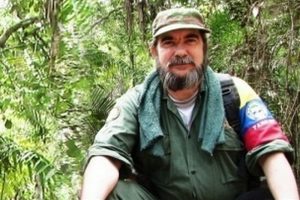
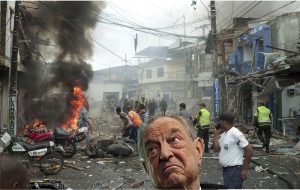
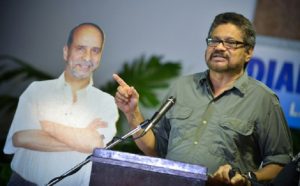
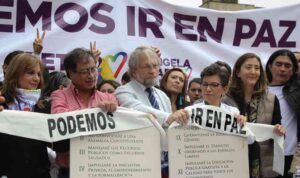
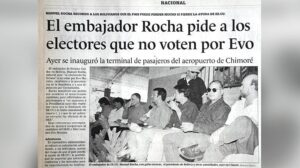
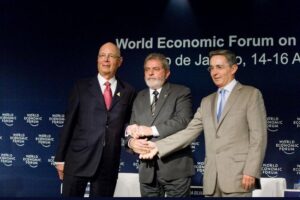
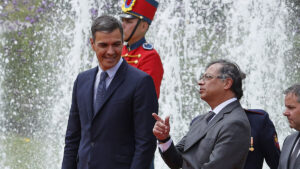
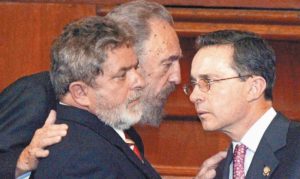
Comentarios
4 pensamientos sobre “BERNARD ARONSON: THE CONFLICTING INTERESTS OF “OUR MAN IN HAVANA’”